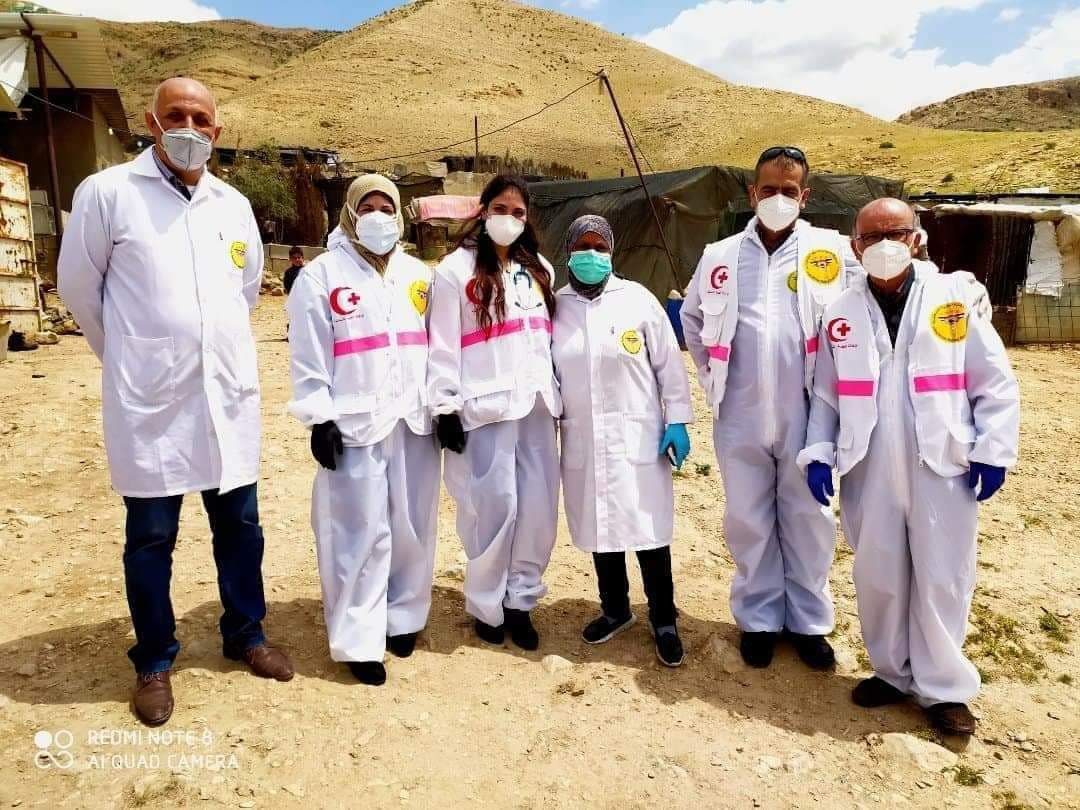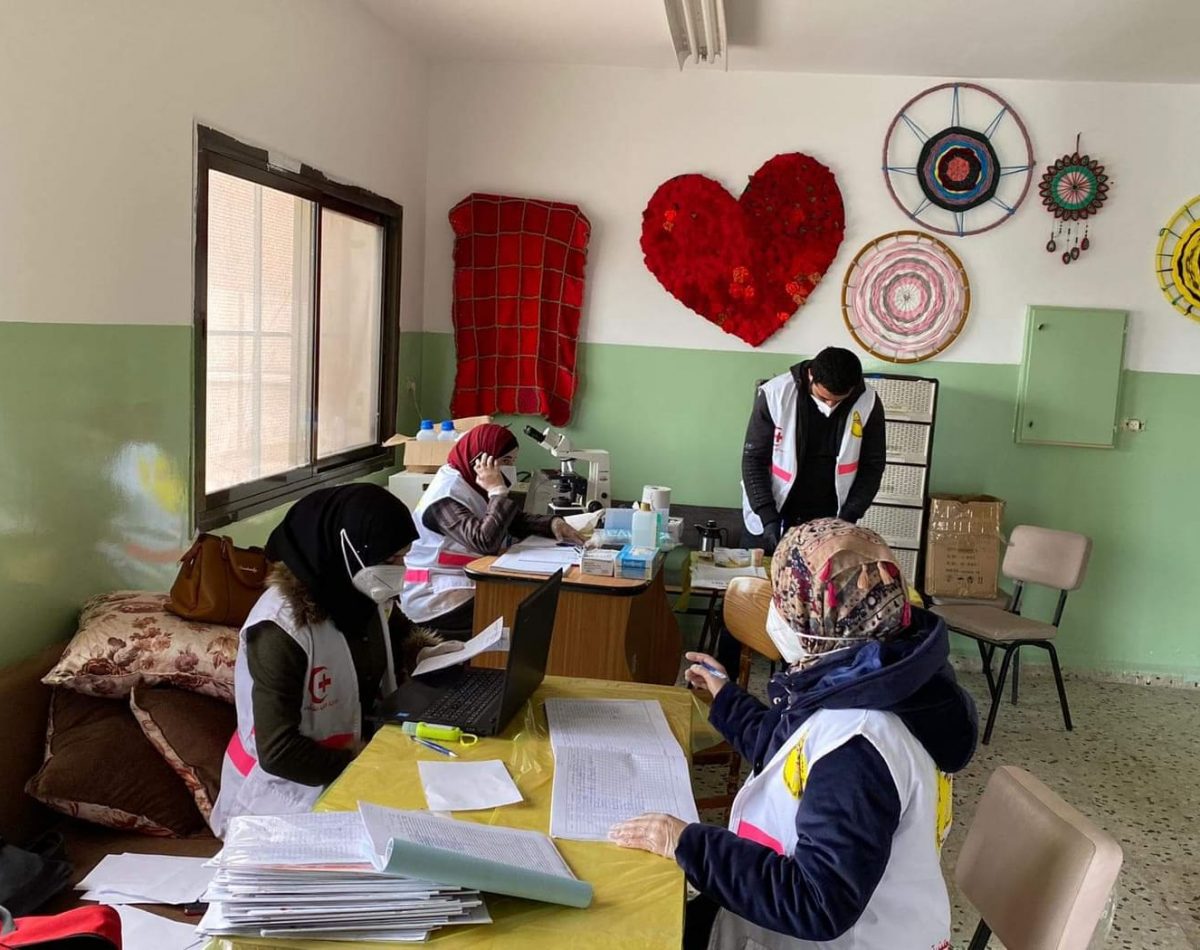‘In the West Bank there are just 100 ventilators, and only 150 ICU beds, which are usually full without the Covid-19 pandemic. Whilst some doctors have very basic protective clothing, some are using their own money to purchase N95 masks which provide more protection. The Palestinian Ministry of Health is not able to provide these.’
Sameer, Palestinian Medical Relief Society
‘No one can move, everything is closed’, Suhad*, a young woman from a city in the Northern West Bank tells me. On 22 March the Palestinian Prime Minister Mohammad Shtayyeh enforced a State of Emergency, telling people they must stay in their homes unless shopping for food and medicine. The exception was those working in hospitals and shops.
‘To begin with the checkpoints were still open, and Israel allowed the Palestinians to still enter. And then when they [Palestinian workers] went there, we started to hear that there are many cases of workers near Jerusalem and Ramallah that have Coronavirus.’
Amina*, Northern West Bank
Amina heard rumours that there were fifteen cases of Palestinian workers catching Coronavirus from an Israeli chicken farm near Ramallah. Whether there is truth in these stories or not, they are certainly creating fear and anxiety for many Palestinians.
Ahmed*, a community activist in the West Bank, explains that,
‘the Palestinian authority was one of the first political systems to take it very seriously. They did so because we don’t have enough breathing machines if the number arrives in the hundreds of thousands. They did try to isolate the first infected people in Bethlehem, and limit the movement of Palestinian people. But because they have not got control of the borders, many infected people came back into the West Bank from abroad.’
In recent weeks the lockdown has been loosened. However, the Muslim celebration of Eid took place on 23-24th May, and Suhad explains how the government ordered a return to complete lockdown for three days. They were fearful that people would be celebrating, and that the virus would spread. ‘But people ignored it, and now we have many cases’ says Suhad.
Following the government’s response, many Palestinians are now struggling financially. Suhad says,
‘My dad and older brother normally work in Israel, in two different places, but now they cannot work. They are staying at home. I am afraid this period will last for a long time, and it will be a disaster because I don’t know what will happen.’
Suhad’s family, like many others, rely primarily on wages from very casual work within Israel. Every morning thousands of workers rise around 3am, and head to the closest checkpoint to queue for what can take two or three hours whilst they wait for their permits to be checked by Israeli security personnel. Having passed through airport-style security, assuming their permit was accepted, they then travel onwards from the Israeli side of the checkpoint to farms and factories across Israel in order to earn a day’s wage. They often get paid cash at the end of the day, and have no employment rights.
There are numerous issues with this style of casual employment; the most pressing at the moment being the complete lack of employee benefits. If you don’t turn up to work, regardless of the reason (sick, medical appointments, travel issues, permit rejected, global pandemic etc.) you don’t get paid.
Suhad’s father suffers from diabetes and was afraid to continue working once he knew about the risk of infection, so has been at home since before the lockdown began. This means he has not been earning any income for over a month.
‘In my family no one is working. We still have a little amount of money saved, and we only buy what we need. We have to budget with what we have until we can go again to our work.’
Despite this, Suhad agrees that the lockdown should be enforced. ‘I think people all over the world should stay in our houses so that the people responsible can control the situation.’ But she also asks that the Palestinian government takes more action:
‘How can you help the Palestinian workers survive? For those working in the [Palestinian] government, they are still earning their salaries. But what about those who work in Israel? No one cares… The [Palestinian] government said we will give you money. It was a one off payment of 700 shekels [£160]. My brother and dad registered but unfortunately we got nothing from it – I think we are not lucky!’
Amina tells me that,
‘the Palestinian government is terrified of the workers who go to Israel by illegal ways. These are the most dangerous as the government can’t control this. These workers come back by illegal routes so the government won’t know about them and they won’t be tested, so could infect their families.’
Going to work in Israel without travelling through checkpoints is illegal, but a choice that many people make in usual circumstances in order to provide the income their families so desperately need. However, in the current situation there is a new health risk.
Sameer* is a doctor with the Palestinian Medical Relief Society. She tells me that mobile clinics are still visiting villages who otherwise have no access to healthcare. During their visits, the staff are very strict about social distancing, and where possible they wear masks, gloves and protective clothing. For elderly and disabled patients, they often have to enter their houses to give treatment and advice.
According to Sameer, the situation in hospitals is much worse:
‘In the West Bank there are just 100 ventilators, and only 150 ICU beds, which are usually full without the Covid-19 pandemic. Whilst some doctors have very basic protective clothing, some are using their own money to purchase N95 masks which provide more protection. The Palestinian Ministry of Health is not able to provide these.’

Palestinian Medical Relief Society staff continue with their work during the Covid-19 pandemic. Photo: Murad Samara
The West Bank is currently under Israeli military occupation, which means that the Israeli government has control over numerous aspects of life within this area, including control over access to land, building permits, and the ability to restrict freedom of movement. Ahmed explains that ‘Israel and the occupation have not stopped any of their activities even during this hard period. They are arresting people, demolishing houses and carrying on with other activities as before.’
Ahmed shares an example of a small village near Nablus, where three Covid-19 cases had been detected. For this reason, the residents were all in quarantine in their own homes.
‘Settlers took advantage of the moment, and attacked the village and destroyed crops in the fields. Villagers were forced to break the lockdown to defend themselves and kick the settlers out.’
Ahmed
In this very difficult time for communities around the world, Ahmed says,
‘Palestinians are fighting on two fronts: one against the Corona pandemic, the other against Israeli occupation.’
*Names have been changed


